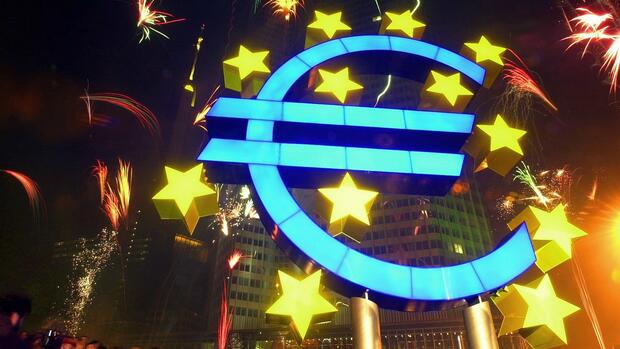Can this go well? A single central bank for meanwhile 20 European countries, plus Andorra, Monaco, San Marino and the Vatican as officially associated mini-countries. In addition, Montenegro and Kosovo as unofficial users. Plus pegged the Danish krone and two versions of the CFA franc in a total of 14 African countries?
The construction of the euro, on which the European Central Bank (ECB) was founded 25 years ago on Wednesday, is similar to the great political turmoil that characterized Europe’s feudal history up to the 20th century.
For about a thousand years there was a web of dynastic relationships, political hierarchies, individually assigned rights and above all an often powerless wandering monarch and an occasional Reichstag with more pomp than real politics.
This structure is still having an impact today, with an abundance of medium-sized and small states, a rudimentary superordinate jurisdiction, a central bank that is uniform for parts of Europe, a parliament with too few powers and a commission that is not a real government and governs with regulations that often are not really democratically legitimized.
Nevertheless: Is there a better place to live in prosperity and security?
The ECB is part and mirror of this structurally chaotic European world. Skepticism arose when it was founded, and the criticism has been unabated ever since. To this day, many Anglo-Saxon experts consider it a mistake to create a single currency without a single financial policy. Although Europe has had this for centuries – with precious metals as currency, which were only minted differently in coins and documented as banknotes.
Ultimately, the ECB does not perform worse than, for example, the traditional Bank of England.
In Germany and some neighboring countries, the dominant concern is having to pay too much for others or being indirectly burdened with foreign debt. In other countries, “Europe” as a whole is concerned about suffering too much interference in its own politics.
Less inflation than before
Nevertheless, since the introduction of euro cash at the beginning of 2002, the currency has largely become a matter of course. With the ECB, inflation is lower than it was before without it, even in Germany for long stretches. Even in the current phase, with inflation rates well above the ECB target of almost two percent, the central bank undoubtedly reacted far too late. Ultimately, however, the ECB does not perform worse than, for example, the traditional Bank of England.
There is not much left to be seen of chronic currency weakness or a currency that is too strong, which endangers exports. Yes, the cohesion of the monetary union was endangered more than ten years ago by the euro crisis, and there will be other euro crises. Yes, the ECB has supported cohesion in part with dubious measures that have led to mingling with fiscal policy.
The central bank is part and mirror of this structurally chaotic European world.
(Photo: dpa)
But in case of doubt, the other central banks are also available as emergency aid for governments. Yes, low interest rates that only partially reflect the financial situation of an individual country can invite high public debt.
>> Read more: ECB monitors banks’ liquidity – Stricter measures are conceivable
The ECB will probably go down in history with the euro as a permanent, but ultimately comparatively well-functioning provisional solution – appropriate to the history of Europe since the Middle Ages and to the European Union as a whole. Contrary to what is often criticised, it was not a “birth defect” to bring the euro into the world without a single financial policy. Without this “mistake” there would never have been a political agreement, the new currency was only available that way. On the other hand, the hope that the euro would pave the way to a politically united Europe has only been vaguely fulfilled in times of crisis. It is important to remain realistic here.
Europe will not become a federal state
A uniform financial policy can only exist in a political union. After all, financial policy is not a special field like education or agriculture, but rather reflects all of politics and also regulates it to some extent. There, sub-areas, such as armaments, can be more integrated; The national parliaments will not allow themselves to be completely deprived of budgetary rights, the origin of parliamentary democracy. The idea of creating more unity with a European finance minister or other structural touch-ups will therefore not go very far.
The current ECB President has led the institution into calmer waters.
(Photo: IMAGO/Political Moments)
Europe is a confederation of states and not a federal state, and it is not foreseeable that the Europeans will want anything else in the future. Therefore, the ECB will probably also remain a temporary solution, which, however – it is also worth looking at history here – can even last for centuries.
>> Read more: Survey – Many salary is not enough to live on due to high inflation
Especially in a provisional situation, it depends on how the cooperation is lived. And this is where the ECB has made progress since Christine Lagarde took office as President – and Joachim Nagel as President of the Bundesbank.
Differences of opinion, behind which political conflicts of interest often hide, are settled more objectively, at least more calmly. The fact that there is a dispute at all is not only unavoidable, but necessary – in an institution that is supposed to please 20 countries.
More: Why the fintech Revolut fears for its banking license in Great Britain
